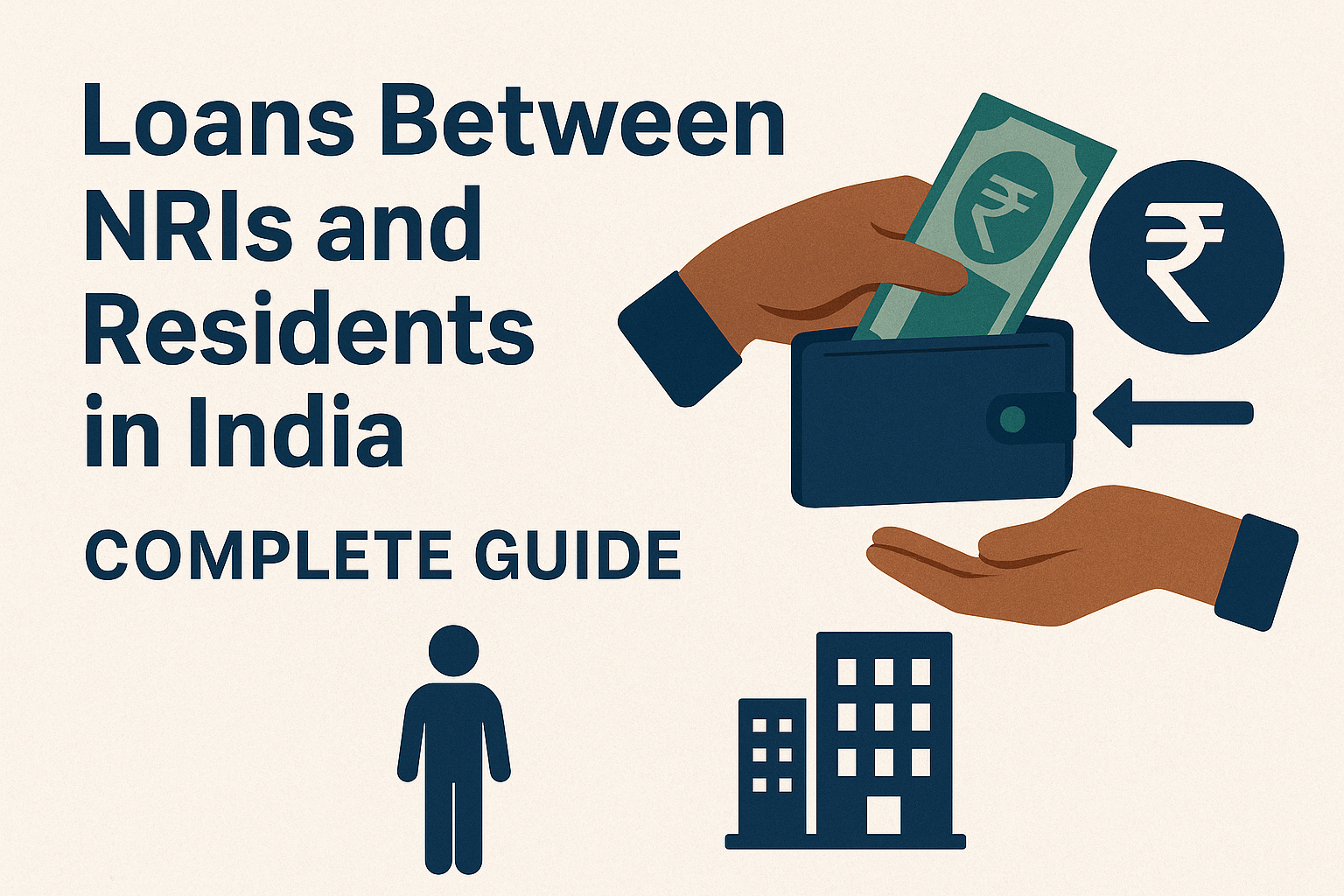 WhatsApp
WhatsApp
 Call Us
Call Us
 Email Us
Email Us
 Whatsapp Community
Whatsapp Community

When it comes to cross-border lending, many Non-Resident Indians (NRIs) and Overseas Citizens of India (OCIs) often ask: Can NRIs give or receive loans in India?
The answer is yes—NRIs can lend to Resident Indians (both individuals and companies) and can also borrow from Resident Indians, subject to specific conditions under the Foreign Exchange Management Act (FEMA) and the Income Tax Act.
This blog explains the rules, limits, conditions, and reporting requirements in detail.
NRIs can give loans in Indian Rupees (INR) to Resident Individuals in India, subject to the following conditions:
Non-Repatriable Basis
Mode of Receiving Loan
The loan amount must be transferred via:
Cash transactions are not permitted.
Loan Tenure
Interest Rate
Repayment
Tip: Always draft a loan agreement under FEMA & tax compliance with professional assistance.
NRIs can lend to Indian companies in INR, either on a repatriation or non-repatriation basis. However, strict conditions apply:
Prohibited Sectors
The Indian company must not engage in:
Mode of Borrowing
Interest Rate
Loan Tenure
Repatriation Rules
Utilization of Loan
Reporting Requirements
Within 30 days of loan receipt, the company must submit a report to RBI containing:
Hence, a company cannot simply take a loan from its NRI directors casually—it must issue NCDs and follow RBI-prescribed procedures.
Foreign nationals who are not NRIs/OCIs cannot directly lend to Indian companies.
They can only do so if:
Such loans fall under the category of External Commercial Borrowings (ECBs), permitted only if the lender is a resident of a FATF or IOSCO compliant country.
Resident Indians can also lend to their NRI relatives under FEMA guidelines:
Mode of Transfer
Loan Limit
Interest-Free Loan
Minimum Tenure
Permitted Use
Repayment Options
1. Can NRIs give loans to friends or family in India?
Yes, NRIs can give loans to Resident Indians, but only through banking channels (NRO/NRE/FCNR accounts or direct remittance), not in cash.
2. Can NRIs charge interest on loans to residents?
Yes, but the interest rate must not exceed 2% above RBI’s Bank Rate for individual loans.
3. Can NRI loans be repatriated outside India?
4. Can Resident Indians give loans to NRIs?
Yes, but only to their NRI relatives, and such loans must be:
5. Can foreign nationals (not NRIs/OCIs) give loans to Indian companies?
No, unless they meet the ECB criteria (minimum equity holding + FATF/IOSCO compliance).
6. What is the safest way for NRIs to lend to residents in India?
The safest way is via NRO/NRE account transfer with a properly drafted loan agreement under FEMA & Income Tax Act.
NRIs can give loans to both Resident individuals and Indian companies, but strict FEMA rules apply regarding tenure, interest, mode of transfer, and repatriation. Similarly, Resident Indians can extend interest-free loans to their NRI relatives under LRS.
For compliance and tax efficiency in NRI Taxation, it’s always best to consult a FEMA and tax professional before structuring cross-border loans.







Stay in the loop, subscribe to our newsletter and unlock a world of exclusive updates, insights, and offers delivered straight to your inbox.